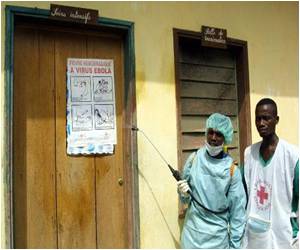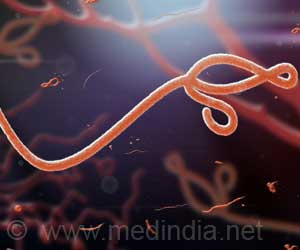The need for real-time scientific data on Ebola outbreaks has been emphasized by Heinz Feldmann, M.D., Ph.D, of NIH to improve health response to outbreaks.

The need for availability of real-time scientific data on Ebola outbreaks has been emphasized by Heinz Feldmann, M.D., Ph.D, of National Institutes of Health (NIH) to improve health response to outbreaks. In an invited perspective article on the Ebola outbreak under way, the scientists are requested to make the data available to colleagues. He cites past responses to influenza and SARS (severe acute respiratory syndrome) outbreaks as successful examples of global information sharing. Rapid diagnoses are key to controlling outbreaks of deadly viruses such as Ebola, for which no therapies are available. The immediate availability of viral gene sequencing data, for example, can reduce waiting times for test results and help to determine whether established test methods will work or fail. Dr. Feldmann conducts research on Ebola and other hemorrhagic fever viruses at NIH's National Institute of Allergy and Infectious Diseases (NIAID). Among other suggestions, he recommends that medical and public health staff in and near locations known to be endemic for Ebola be trained to assess infection risks and diagnose disease. Enhancing the capabilities of local laboratory workers would make test results available more rapidly by eliminating the need to ship samples to distant reference laboratories.
Dr. Feldmann and his NIAID colleague David Safronetz, Ph.D., explored this regional diagnostic approach while working with Malian health researchers and officials in April, after the nation reported 12 suspected Ebola cases. The NIAID group worked at the International Center for Excellence in Research, a partnership between NIAID and Mali's University of Bamako, where they observed isolation procedures and showed local physicians how to handle Ebola specimens and test for disease. All of the suspected cases in Mali tested negative.
ARTICLE:
H. Feldmann. Ebola—A Surprise in West Africa? New England Journal of Medicine DOI: 10.1056/NEJMp1405314 (2014).
WHO:
NIAID Director Anthony S. Fauci, M.D., is available for interviews. Heinz Feldmann, M.D., Ph.D., an expert on Ebola virus and chief of NIAID's Laboratory of Virology, also is available.
Source-Eurekalert
 MEDINDIA
MEDINDIA




 Email
Email





